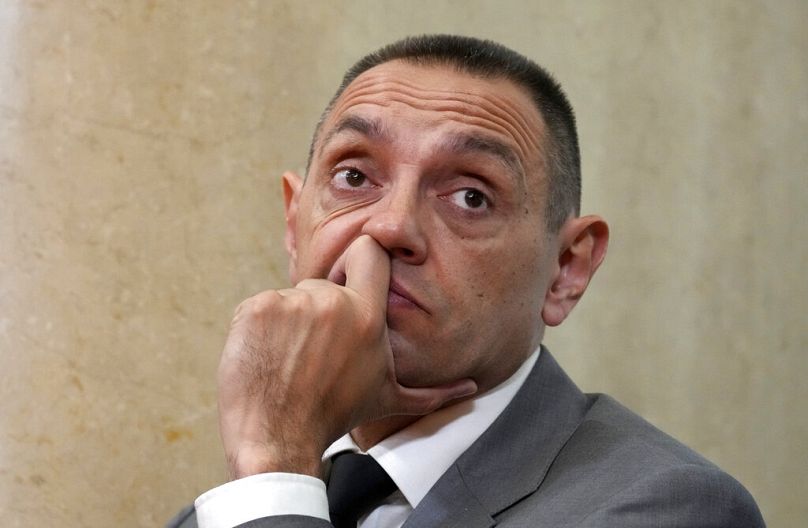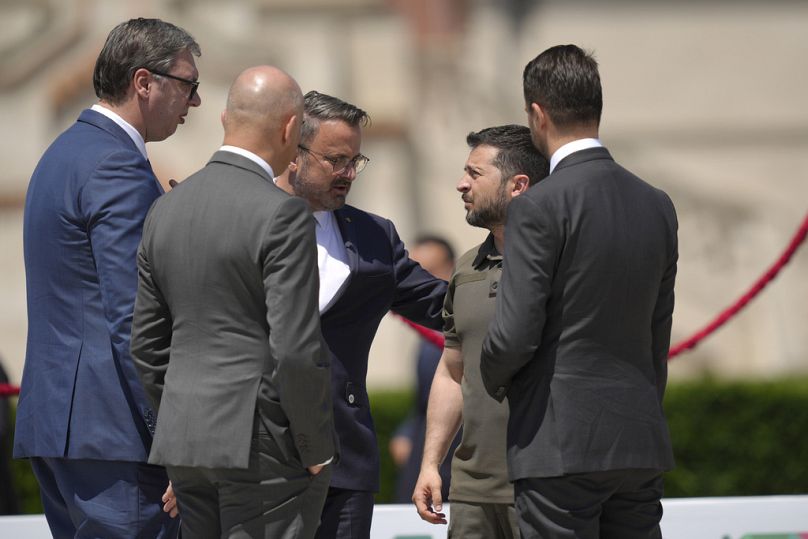Serbia has tried to maintain a fragile balancing act between Brussels and Moscow ever since the Ukraine invasion. Could the recent US sanctions against its spy chief tip the scales?
Earlier this week Washington placed Aleksandar Vulin, a longtime politician in Serbia and current head of its intelligence agency, on its sanctions list for what it called “corrupt dealings [that] facilitate Russian malign activities in Serbia and the region.”
“He has used his public positions to support Russia, facilitating Russia’s malign activities that degrade the security and stability of the Western Balkans and providing Russia a platform to further its influence in the region,” the US Treasury Department statement said.
He is the first Serbian official to be sanctioned while in power since the Yugoslav disintegration wars of the 1990s.
Vulin has been active in politics for decades and served as Minister of Interior and Defense, respectively, in previous governments.
He has often voiced sentiments critical of the West and during a visit to Moscow, where he met with Russian Foreign Minister Sergei Lavrov, reiterated that “Serbia is the only country in Europe that didn’t introduce sanctions and is not part of the anti-Russian hysteria.”
The visit was criticised by the EU and US.

Following this trip, prominent Kremlin critic Vladimir Kara-Murza alleged Russian opposition figures, who fled to Serbia following the full-scale invasion of Ukraine, were being wiretapped by the Serbian authorities.
He alleged Vulin had handed over transcripts of these wiretaps to Russia.
Thousands of Russians have come to Serbia due to a lack of alternative travel possibilities after the invasion, with Serbia maintaining direct flights to the country.
Kara-Murza also claimed that Vulin had, together with the Secretary of the Russian Security Council Nikolai Patrushev, formed a working group to tackle “colour revolutions” – a term used by officials in Russia and others to describe mass protests or movements against sitting governments which they claim are funded or backed by the West.
Vulin denied the claims and said he would sue Kara-Murza.
‘We do not want to fight in the West’s wars’
Serbian President Aleksandar Vučić has responded to the sanctions by claiming “sanctions were not imposed against Vulin over crime but because of his relationship with the Russian Federation.”
The opposition in the country has demanded Vulin resign.
The Serbian Progressive Party, founded by President Vučić but which he recently left in order to launch a new initiative, claimed Vulin was merely refusing to be dragged into the “West’s conflicts”.
“For the killers from the White House, it is Vulin’s fault that he supports international law and that he refuses to be dragged into the Western conflict in the East. Vulin’s attitude that we want peace and not to be a Russophobic side in a fratricidal war,” said a party statement.

Many in Serbia believe in a “brotherly” relationship with Russia due to their shared Slavic background and Eastern Orthodox faith.
While many officials in the country express eurosceptic views, Serbia is officially an EU candidate country and receives significant funding from the EU.
Its membership in the bloc is particularly backed by Hungary, whose Prime Minister Viktor Orban maintains a close relationship with the government.
For weeks, Serbian opposition parties have organised regular protests in central Belgrade against what they deem is “the government’s promotion of violence” following a tragic school shooting in the country that killed 10 schoolchildren and injured countless others.
Source : EuroNews
















